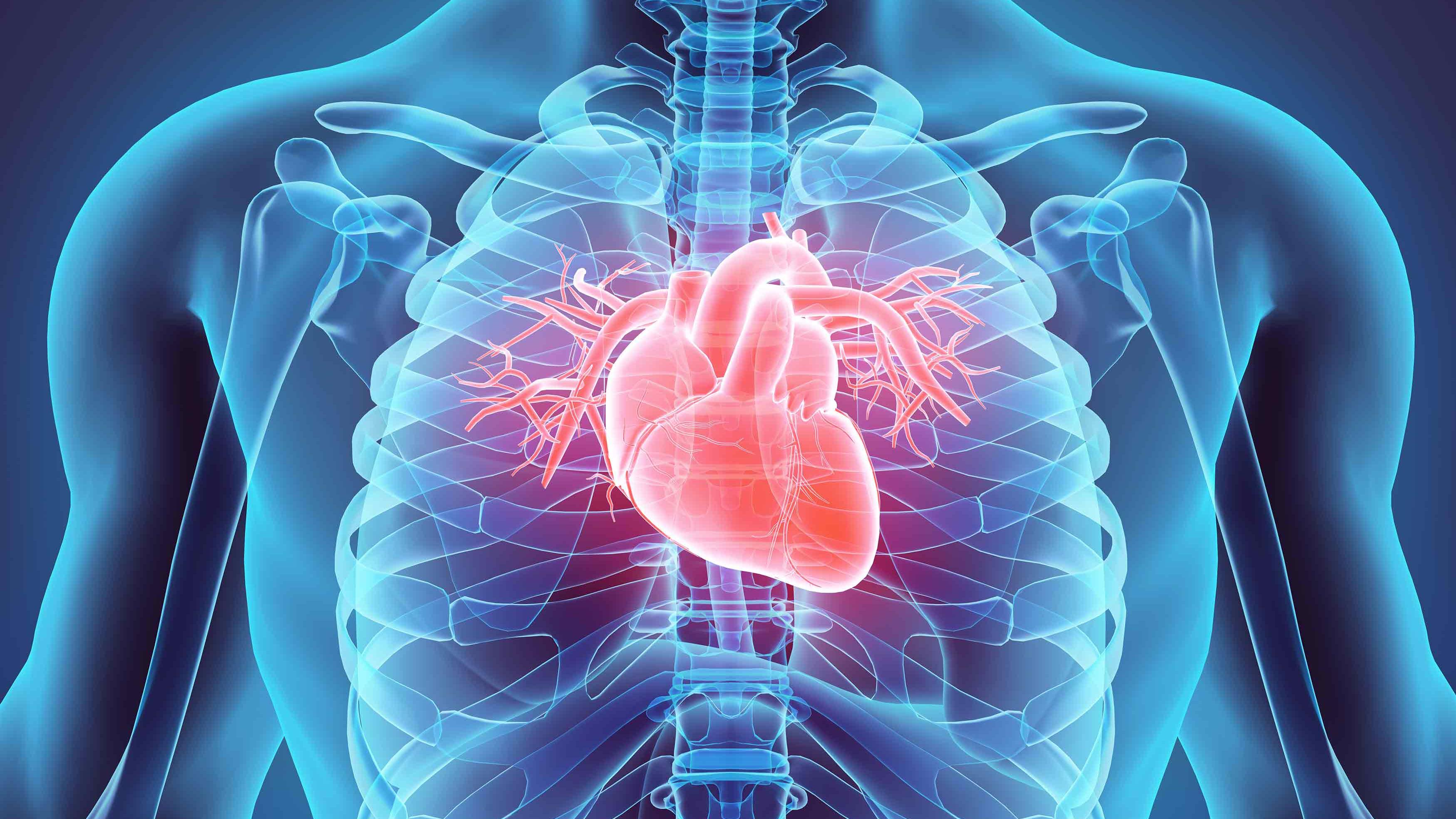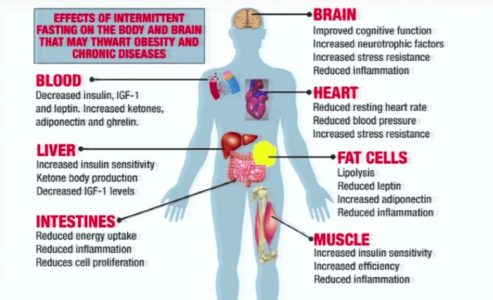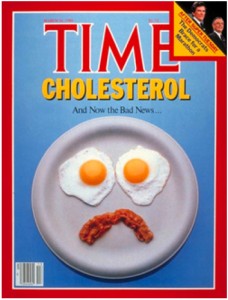I am concerned about the increasing popularity of the vegan movement and vegan diets with respect to its potential impact on individuals’ health.
My personal opinion and my experience working with patients is that initially individuals who adopt a (healthy) vegan diet may realize some health benefits, however over the long term there is a significant potential that these individuals may develop nutrient deficiencies which may have profound effects on health.
From my perspective, there are a couple of considerations to this:
Firstly, every individual is biochemically and metabolically unique and a vegan diet may not be appropriate for a specific individual. This is the same consideration with respect to any diet, whether it be low carb/high fat, vegetarian – or whatever.
The second consideration is the fact that most individuals simply do not have the knowledge and expertise to understand how to assess whether they are developing deficiencies, or how to supplement to address these deficiencies or prevent them.
I recently presented a three hour Master Class lecture to 4th year Naturopathic students at our local Naturopathic school: Boucher.
The topic of the lecture presentation covered ketosis, the ketogenic diet, intermittent fasting, time restricted feeding – but also information on the Fasting Mimicking Diet developed by Valter Longo, PhD.
If you are not familiar with the Fasting Mimicking Diet (FMD), the concept is that for a limited number of days during any month if you consume a restricted number of calories of specific types of food, it has the effect of providing a CRM (Caloric Restriction Mimetic) influence on the metabolism for the whole month.
And Longo and his colleagues have published a considerable number of studies to back up his hypothesis.
The one negative about the program is that they recommend accessing (expensive) prepared meals from a provider for the fasting days in a set up similar to Weight Watchers.
Also in the lecture presentation, I talked about some of the issues related to vegan diets (deficiencies) – and also with animal protein consumption (the primary concern being an increase in IGF-1 insulin like growth factor levels which can stimulate cell growth and division – and some ways to counteract this mechanism which I will detail in a separate article).
Today I wanted to share an article from the Daily Mail newspaper in the UK detailing Virpi Mikkonen who is a high profile poster girl for the meat-free revolution and a social media guru and how she confessed that a vegan diet ruined her health and brought on early menopause.
Also I am including some information from my Boucher lecture regarding some of the potential nutrient deficiencies associated with a vegan diet.
Individuals choose specific diets for different reasons: for ethical and environmental issues (common with the vegan community), they buy into a fad diet which has become popular – or hopefully like myself and I would presume many practitioners reading this article that have biohacked their metabolism to determine the best diet to optimize their health and quality of life.
For myself, a LCHF (low carb / high fat) / ketogenic diet works optimally: I do not stay in ketosis continuously but I have adapted my metabolism so that it can switch back and forth effortlessly between burning fat and sugars.
I am of the opinion that this metabolic flexibility is something that all individuals can benefit from, provided their metabolism and health will allow them to stay in a continuous state of ketosis to initially make this transition to being keto adapted, which takes about six weeks.
Read More
Category: Cardiovascular Health
Milk & Milk Products: Good or Bad For Your Health?
Written by Rob on . Posted in Cardiovascular Health, Diet, Disease Conditions, Health News. Leave a Comment
There is ongoing debate about whether the consumption of milk and milk products provides health benefits or alternatively are detrimental to health.
One consideration is important when reviewing publications related to this topic: author/researcher bias.
As an example, I have included an article in this newsletter authored by T. Colin Campbell, PhD.
Some of you may recognize Campbell as the author of “The China Study” which concluded that research conducted in China showed that vegetarian diets were superior to the inclusion of animal protein in the diet.
Independent review of Campbell’s research showed convincingly that the data in the study was selective to prove his hypothesis and in addition Campbell is known to be a big supporter of vegetarian and vegan diets.
Here is an example of some of the rebuttals to Campbell’s study
A1 vs. A2 Protein:
This article also highlights the suggestion that the protein derived from different species of cattle can have different health effects – either good or bad. This is referred to the difference between A1 and A2 protein:
- A1 beta-casein comes from the most common cow breed that originated in Australia, United States, and Northern Europe. Holstein, Friesian, Ayrshire, and British Shorthorn features A1 beta-casein genetic material. A1 beta-casein can be found on all commercially-prepared milk.
- A2 beta-casein is protein found in milk produced by ‘old-fashioned’ cows like the Jersey, Charolais, Guernsey, and Limousin. Milk produced by other mammals such as those from human, goat, and sheep is similar to A2 dairy milk mainly due to the presence of proline (6 ,7).
Milk
produced by A1 cows supposedly produces opiate-like effects resulting in the
development of mild to serious medical conditions (2).
What is BCM7?
BCM7 (Beta-casomorphin-7), an opioid
peptide opioid peptide in A1 beta-casein
is produced as a result of the breaking off of histidine in the number 67 amino
acid chain during digestion(9, 10).
BCM7 is the reason why regular cow’s milk is considered to be a less healthy
option than milk containing A2 beta-casein.
The absorption of BCM7 into the bloodstream leads to the high incidence of
autism, schizophrenia, and other neurological disorders(11, 12, 13, 14).
Also milk contains various hormones which may be detrimental to consume:
IGF-1 has been associated in some studies with increased height as well as cancer. …
First, cow’s milk contains steroid hormones such as estradiol and testosterone, and peptide hormones such as IGF-1.
Second, drinking milk has been shown to boost serum levels of certain hormones, particularly IGF-1, in humans.
It is also well known that many individuals (approximately 25% of the population in North America) are lactose intolerant and many individuals are reactive to milk.
I have also included an abstract which suggests that milk and milk products are beneficial for human health:
“The totality of available scientific evidence supports that intake of milk and dairy products contribute to meet nutrient recommendations, and may protect against the most prevalent chronic diseases, whereas very few adverse effects have been reported”.
My personal opinion is that cow’s milk is best suited to baby cows, however this is certainly not a black and white consideration.
Can Skipping Breakfast Contribute to Cardiovascular Disease?
Written by Rob on . Posted in Anti-aging, Blood Sugar, Brain Health / Conditions, Cardiovascular Health, Diet, Digestion / Gut Health, Disease Conditions, Health News. Leave a Comment
There have been some articles circulating in the common press suggesting that skipping breakfast may be detrimental to your health – specifically CVD issues.
These articles are based upon a recently published study: the latest report from the April issue of the Journal of the American College of Cardiology: “Taken together, these studies [showing a positive association between skipping breakfast and CVD and CVD risk factors] as well as our findings underscore the importance of eating breakfast as a simple way to promote cardiovascular health and prevent cardiovascular morbidity and mortality.”
This assertion would of course seem counter-intuitive to those of us who incorporate intermittent fasting into our lifestyle.
For those of you who are practitioners, this topic may come up if some of your patient population has read any of these articles.
Peter Attia MD wrote a great rebuttal to this commentary.
Peter hosts a great podcast and sends out a weekly newsletter article – here is his website:
Here is the content from his newsletter article countering the conclusions of this paper.
(as with many of these types of studies, some key issues included the fact that it was an observational study, bias, confounding factors).
Greetings –
Nota bene: I was pretty pissed off when I wrote this, but don’t let my annoyance detract from the message. Bad science is an abomination. Incompetent news reporting on bad science is worse.
You’ve probably heard that breakfast is the most important meal of the day. “What is less commonly mentioned,” writes Alex Mayyasi in The Atlantic, “is the origin of this ode to breakfast: a 1944 marketing campaign launched by General Foods, the manufacturer of Grape Nuts, to sell more cereal.”
Seventy-five years later, here’s the latest report from the April issue of the Journal of the American College of Cardiology: “Taken together, these studies [showing a positive association between skipping breakfast and CVD and CVD risk factors] as well as our findings underscore the importance of eating breakfast as a simple way to promote cardiovascular health and prevent cardiovascular morbidity and mortality.”
What were the findings? Let’s look at a few newspapers:
- “Want to Lower Your Risk for Heart Disease? Eat Breakfast Every Morning” (Healthline)
- “Eating breakfast? Skipping a morning meal has higher risk of heart-related death, study says” (USA TODAY)
- “Study: Skipping breakfast increases risk of heart disease mortality by 87 percent (FOX)”
(You may notice that all three headlines imply causality.)
Looks like General Foods was right. Time to reach for the Lucky Charms? Perhaps it’s time to put on our critical thinking cap instead. The actual study, and the media coverage of it, is a part of the Groundhog Day that is observational epidemiology (for more on the limitations of this type of research, check out Studying Studies: Part II). This was a prospective cohort study pulling data from NHANES III, looking at people who reportedly eat breakfast every day to people who never eat breakfast, and then following up with them (about 19 years later on average), tallying up the deaths from CVD and deaths from all causes.
One question to ask about the population studied is: was eating breakfast or not eating breakfast the only difference between these two groups? In other words, were there any confounding factors (for more on confounding, see Studying Studies: Part IV)? The authors reported that, “participants who never consumed breakfast were more likely to be non-Hispanic black, former smokers, heavy drinkers, unmarried, physically inactive, and with less family income, lower total energy intake, and poorer dietary quality, when compared with those who regularly ate breakfast.” Not only that, “participants who never consumed breakfast were more likely to have obesity, and higher total blood cholesterol level than those who consumed breakfast regularly.” They also had a higher reported incidence of diabetes and dyslipidemia. Read that again, please.
While the study used statistical models to “adjust for” many of these potential confounders, it’s extremely difficult (actually, it’s impossible) to accurately and appropriately adjust for what amounts to fundamentally different people. The healthy user bias (or the inverse, an unhealthy user bias) is virtually impossible to tease out of these studies (the healthy user bias is covered in more depth in Studying Studies: Part I). Not only that, you never really know what you’re not looking for. This is typically referred to as residual confounding in the literature, where other factors may be playing a role that go unmeasured by the investigators.
I haven’t even yet mentioned the misleading nature of reporting relative risk — in this case, an associated 87% (reported in the study as a hazard ratio of 1.87) — without reporting absolute risk. The question you should always ask is, 87% greater than what? To get an idea of the associated absolute risk, the number of CVD deaths in the “every day” breakfast group were 415 out of a total of 3,862 people over 16.7 years (that’s an unadjusted rate of 10.7%) while the numbers for the “never” breakfast folks were 41 CVD deaths out of a total of 336 people over 16.7 years (unadjusted rate of 12.2%). That’s an absolute difference of 1.5% over almost 17 years (annually, this is an absolute difference of 0.09%). Granted, this is before adjustment of the myriad confounders (including the biggest “risk factor” for CVD death, age, in which the “never” breakfast group was younger on average at baseline), but it gives you an idea that we’re looking at small differences even over the course of a couple of decades. This looks a lot difference on paper than an associated 87% increased risk of CVD death. (For more on absolute risk and relative risk, see Studying Studies: Part I.)
There’s more:
- What were the participants actually eating for breakfast? We don’t know. The investigators didn’t have information about what foods and beverages they consumed.
- Did participants change their breakfast eating (or abstaining) habits over the course of almost 20 years? We don’t know. Information on breakfast eating was only collected at baseline.
- Could there be errors in the classification of the causes of death in the participants? It’s possible.
- What constitutes skipping breakfast? Was it the timing of the first meal of the day? We don’t know. Participants were asked, “How often do you eat breakfast?” but there was no definition of what that means, exactly.
What’s more likely: reported skipping breakfast was a marker for a lifestyle and environment that may have predisposed these people to a higher risk of CVD death or that skipping breakfast itself causes CVD death?
Go ahead and skip all the breakfasts you want. And please forward this to the next 10 people who tell you it’s unhealthy to do so.
– (Pissed off) Peter
For a list of all previous weekly emails, click here.
Intermittent Fasting Impacts on Aging, Longevity
Written by Rob on . Posted in Anti-aging, Blood Sugar, Brain Health / Conditions, Cardiovascular Health, Diet, Digestion / Gut Health, Disease Conditions, Female Conditions / Issues, Health News, Male Conditions / Issues, Pain / Inflammation, Sexual Health. Leave a Comment
Some recent dietary and eating pattern trends have been shown to have positive benefits on health for many individuals.
The specific trends I am referring to include: low carb diets, intermittent fasting and compressed windows of feeding (such as 8/16 hours: eating during a period of 8 hours and fasting for 16 hours.)
The following article from Natural News highlights some of the recent studies and health benefits of intermittent fasting.
I am sure many of you may have tried intermittent fasting yourselves and have recommended it to your patients: I certainly count myself in with this group, and I have seen some significant health benefits in some patients.
In the article, it highlights a specific study done at Harvard which was published in the journal Cell Metabolism.
Here is one of the key takeaways from the study:
“Manipulating mitochondrial networks inside cells — either by dietary restriction or by genetic manipulation that mimics it — may increase lifespan and promote health, according to new research from Harvard T.H. Chan School of Public Health.”
Newly Published Research Confirms: Dietary Fat does NOT Cause Heart Disease
Written by Rob on . Posted in Anti-aging, Brain Health / Conditions, Cardiovascular Health, Diet, Digestion / Gut Health, Disease Conditions, Health News. Leave a Comment
Further published research supports the fact that dietary fat consumption does NOT cause Heart Disease: A recently published meta-analysis (analysis of multiple published studies) supports this. The original research suggesting that dietary (saturated) fat contributed to heart disease fat which is described as the “Diet/Heart (Disease) Hypothesis” was flawed (the original researcher Ancel Keys, selectively chose data results which supported his hypothesis and excluded considerable data which showed it was not true!
Here is a summary on this recent analysis:
New Evidence Reveals that Saturated Fat Does Not Increase the Risk of Cardiovascular Disease
In light of new scientific data, it appears that saturated fat is not
associated with an increased risk of cardiovascular disease (CVD).
Andrew Mente Andrew Mente, PhD
Highlights
Assistant Professor, Department of Clinical Epidemiology and Biostatistics, McMaster University
Present evidence suggests that saturated fat does not increase the risk of cardiovascular disease.
No causal relationship has been established between milk products and cardiovascular risk.
Factors associated with an increased risk of coronary heart disease
include trans fatty acids and high glycemic-index foods.
Part of the confusion comes from the food and processed oils industry creating misinformation to confuse the general public.
Note the last point in the summary: high glycemic-index foods are carbohydrates/sugars which can be a major contributor to not only heart disease but also diabetes, non-alcoholic fatty liver disease etc. https://www.dairynutrition.ca/…/new-evidence-reveals-that-s…
5G Wireless Technology – A Toxic Assault on the Planetary Web of Life
Written by Rob on . Posted in Anti-aging, Brain Health / Conditions, Cardiovascular Health, Disease Conditions, Health News, Pain / Inflammation, Toxins. Leave a Comment
Today I want to share with you an excellent in depth article from the blog of Dr. Gabriel Cousins, MD. which discusses the disastrous advent of 5G wireless technology.
This technology is predicted to create significant health issues for humanity: from the article below, here are some of the suggested consequences.
Effects include:
- Alteration of heart rhythm[xix]
- Altered gene expression[xx]
- Altered metabolism[xxi]
- Altered stem cell development[xxii]
- Cancers[xxiii]
- Cardiovascular disease[xxiv]
- Cognitive impairment[xxv]
- DNA damage[xxvi]
- Impacts on general well-being[xxvii]
- Increased free radicals[xxviii]
- Learning and memory deficits[xxix]
- Impaired sperm function and quality[xxx]
- Miscarriage[xxxi]
- Neurological damage[xxxii]
- Obesity and diabetes[xxxiii]
- Oxidative stress[xxxiv]
- Autism[xxxv]
- ADHD[xxxvi] [xxxvii]
- Asthma[xxxviii]
- Negative altered mental states, including increased depression, anxiety, and suicidal tendencies[xxxix]
Damage goes well beyond the human race, as there is abundant evidence of harm to diverse plant- and wildlife[xl] [xli] and laboratory animals, including ants,[xlii] birds,[xliii] [xliv] forests,[xlv] frogs,[xlvi] fruit flies,[xlvii] honey bees,[xlviii] insects,[xlix] mammals,[l] mice,[li] [lii] plants,[liii] rats,[liv] trees,[lv] and microbes.[lvi]
Copyright © 2019 R. V. Lamberton & Associates, All rights reserved





